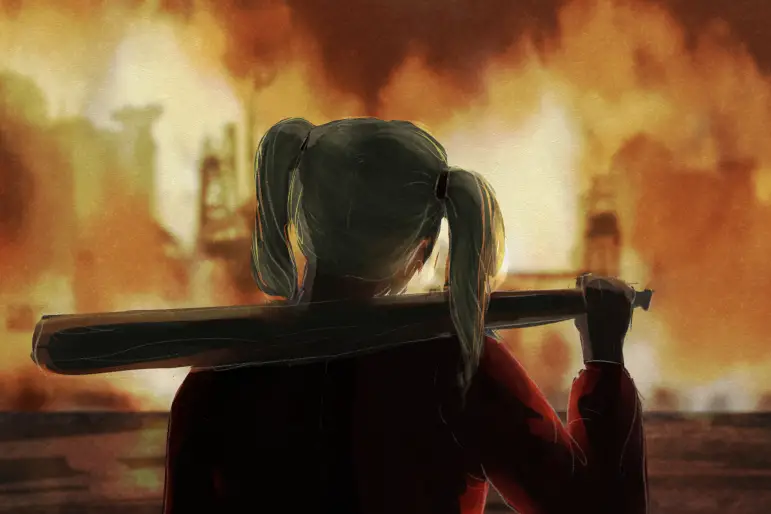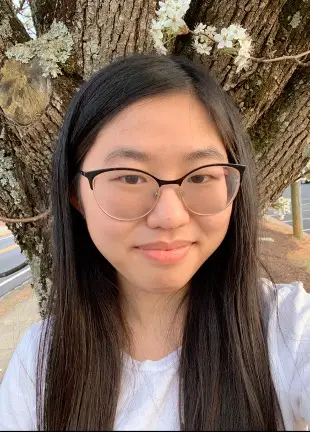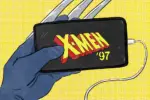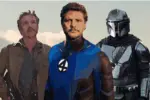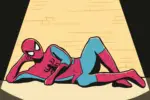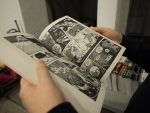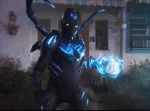Whether they belong to Marvel’s Avengers or DC’s Justice League, superheroes are absolutely dominating the entertainment industry. There’s no escaping them. They’re in every movie theater, television and streaming service, with trailers for new shows and movies popping up in between.
Unfortunately, the abundance of superhero content is leaving some viewers fatigued, since it’s just too much of the same deal. In response to the oversaturation of superhero content, studios have made their products darker and grittier, usually with the inclusion of more violence, meta-commentary and nuanced, almost relatable villains.
While this has proven effective both in retaining old viewers and attracting new ones, our obsession with villains precedes modern superhero movies, and sometimes exceeds our admiration for the heroes. As a result, despite our admiration for popular heroes like Iron Man and Wonder Woman, villains, too, are having their time in the limelight.
Despite (or perhaps because of) the massive controversies that continue to surround the production, “Joker” has already proven that films that feature well-known villains as the protagonist can see wild success at the box office. “Joker” was more profitable than the long-awaited “Avengers: Endgame” and even snagged a couple of awards on its way. Shows like “Loki” and the animated “Harley Quinn” are continuing this trend on the small screen as they achieve widespread acclaim. I’ve seen so many GIF sets of Loki when scrolling through Tumblr that I may as well have traveled back to 2012.
But what is so captivating about these villains? Well, besides the fact that they are portrayed by charismatic actors like Tom Hiddleston and Margot Robbie, they possess certain desirable traits that their heroic adversaries don’t.
The fault lies partially in the ways we restrict superhero media. Frankly, superheroes just aren’t that cool.
Okay, that might be a stretch. Batman has a car that fires missiles, after all. But superheroes have to be the good guys — not only to themselves, but to others — and that limits the kind of stories they can tell. Generally speaking, this means superhero movies are more predictable and present simplistic answers to moral quandaries that conform a little too perfectly to the status quo.
In some cases, they’re outright propagandistic. For example, Marvel and Disney have had multiple partnerships with the U.S. military, which bleeds into the type of films they create, and they’ve got a soft spot for nice billionaires. DC is also conveniently amenable to good guys in positions of authority, though not so much to the abstract people they supposedly protect.
Superhero movies, then, exist to uphold a sense of American moral superiority. Sometimes they do this in ways that even contradict themselves, but regardless, the “correct” messaging is still there: Exceptional individuals who do things adjacent to the law (but are simultaneously above it) solve problems that the infantile, incompetent masses cannot solve themselves.
While comics, which reach a much more niche audience, tend to grapple with weird, taboo and sometimes politically charged issues, superhero entertainment meant for a wide viewership must avoid these topics. Additionally, Hollywood censorship and, of course, a hunger for that sweet, sweet military money result in a final product that often feels sanitized. This, albeit entertaining, doesn’t challenge present notions about, well, most things, really.
The messaging doesn’t make superhero movies inherently bad, nor does it speak to all superhero movies. But we should be able to acknowledge that they do tend to be more predictable than other forms of entertainment, especially when considering the sheer number of superhero movies and shows out there. As such, they are relatable only to a specific type of fantasy.
This is especially true in the present day, when so many people across all demographics have very legitimate grievances to hold against the powers that be. We don’t want to just hear stories that implicitly argue that the way our world works is good and fair, but rather ones that can show us how it’s not and how people rally against it. Villains, be they the antagonist or protagonist of the story, provide a fascinating avenue with which to explore the imperfections of our world because they don’t hold themselves to the same restrictions by which we need to hold ourselves.
They exist in stark contrast to the somewhat more consistently good heroes. While certainly not a perfect stand-in for activists, or a stand-in at all, really, good villains captivate us because they oftentimes hold grievances against authority figures that mirror our own. In contrast, superheroes defend those authority figures, when they aren’t authority figures themselves.
Look at the success of “Joker.” Although surrounded by bad press, the film reimagines Batman’s most iconic antagonist as a symbol for people who, yes, “live in a society,” but who also find themselves rejected by that society for reasons partially outside their control. Regardless of the fact that the Joker himself purports that he is not interested in politics, he is turned into a political symbol by the people amid a massive class uprising. The movie remains controversial, and the director refuses to tie his work to politics at all, but in a mirror to the events of the film itself, people have still politicized the character to an endless degree.
Next to the clown prince of crime is Harley Quinn, another prime example of why villains draw in so many people. There are obvious reasons, of course. She’s fun, quirky and attractive. She encapsulates age-old tropes of the femme fatale, the crazy woman, the raunchy villainess. But beyond all that, she’s messy.
Though probably among the more unstable characters in the DC canon, Harley Quinn’s development from a temporary cartoon sidekick suffering through an abusive relationship to a much-beloved character in her own right is fascinating.
Although she was designed as a one-off character for a kids cartoon, audiences loved her enough that she very quickly became a staple. She even got her own comic series in the late ‘90s after her on-paper debut, and though that came to an end in 2003, her popularity rebounded after appearances in the Arkham Asylum video game series. Then, in 2016’s “Suicide Squad,” people touted her as one of the movie’s (few) highlights, and people — especially women — continued to enjoy her character in a wildly different but still lovable version presented in “Birds of Prey.”
Additionally, jokes about Batman’s oral performance aside, her animated show is doing pretty well too. In fact, HBO’s “Harley Quinn,” which sees her teaming up with Poison Ivy and their own gang of miscreants, underlines the ways she has been abandoned and mistreated by those closest to her. It helps that the people behind both the cartoon and 2020’s “The Birds of Prey” lean into the feminist undertones of this character, showcasing her struggle to gain power and be taken seriously as a person and a fearsome villain in her own right, rather than simply as the Joker’s girlfriend and sidekick.
Even when she takes the lead, Harley still exists outside certain moral constraints, which allows her to stray away from an idealized version of a woman and take on a far more raw character. In her animated show, she goes far enough to destroy Gotham City and turn it into an apocalyptic wasteland, but as her partner Poison Ivy puts it, Harley Quinn is a “Bad Guy,” not a bad person. She’s allowed to be violent, crude, goofy and, yeah, pretty messed-up.
So, through all of her more successful iterations, she is a character who speaks to the messiness of life and a different kind of power fantasy, one that stresses freedom over authority.
There are still lines that she won’t cross, as there are for all people, but Harley gets to play with them in ways that, say, Superman or Wonder Woman just wouldn’t. Not really, anyway, not when they also need to uphold truth, justice, the American Way and all that jazz. Amanda Conner, one of the writers for comic series “Harley Quinn,” illustrates this quite well when she contrasts Harley with DC’s most famous female superhero: “Wonder Woman sort of represents perfection, whereas Harley represents everybody else.”
Furthermore, it’s just plain gratifying to watch someone fight and scratch and claw their way to achieve their goals without limiting themselves with the assumption that the law is always right. With an ever-growing awareness of political issues like climate change, police brutality and income inequality, we have all quickly learned that lawful doesn’t necessarily mean moral. I personally find greater pleasure in watching Poison Ivy bring about harm to climate change-denying CEOs than, say, reading about how Oliver Queen likes donating to green charities (which might be why I love the storylines in which he loses his wealth, but that’s another matter), even if I fundamentally disagree with violence. Similarly, others find satisfaction in the Joker as he lashes out at the world or Harley Quinn as she socks her abuser in the face.
While superheroes are an attractive power fantasy with plenty of good stories up their sleeve, these characters are ultimately still products of whatever company they belong to. As such, their movies exist within certain safe boundaries. Seeing as people are becoming increasingly dissatisfied with the direction our society is headed in, however, we need characters who cater to a different type of wish fulfillment. We need characters who have the capacity and the drive to change the world, whatever it takes.
Superheroes just don’t have that ability to challenge the status quo to the same degree, and until they can break out of the mold that Hollywood forces them in, they never will. And while that is happening to a certain extent, as of right now, no superhero can take over the place that villains have in our collective conscious.


